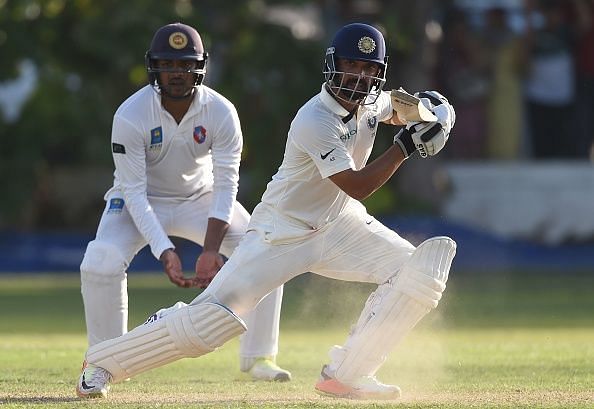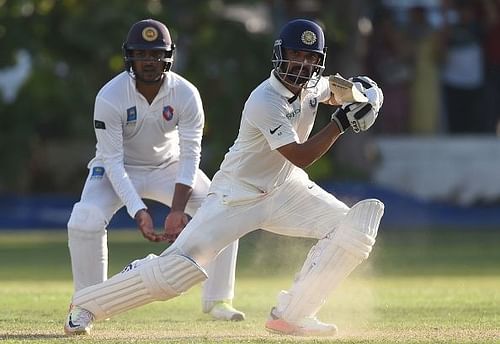
Sensational Al-Jazeera sting exposes fixing in Test Cricket

What's the story?
In a world outside the pulsating realm of the IPL, a jolt has been dealt to world cricket after a sting operation by Doha based media house Al-Jazeera revealed incidents of blatantly admitted match fixing in the subcontinent, especially Sri Lanka.
In a footage shared with Hindustan Times, they revealed how a Mumbai-based former Indian first-class cricketer, an Indian advertisement executive based in the UAE and members of the D-Company use their ‘connections’ in the cricket establishment and even in the International Cricket Council (ICC) to manipulate the results of particular matches.
Journalist David Harrison's investigations have led to the alleged exposing of the crux of the dark side of cricket, match and spot fixing. The involved personnel go about their business by bribing curators, current and former cricketers to sway the outcome of sessions or an entire match in ways they deem profitable to themselves.
Among the cricketing involvements are the youngest ever Test debutant Hasan Raza and three Sri Lankan international representatives – Dilhara Lokuhettige, Jeevantha Kulatunga and Tharindu Mendis – all of them have been reported to have indulgence in spot-fixing or tampering with the pitch to determine the result of the match in a particular time frame.
In case you didn't know...
The curator of Galle Stadium, Tharanga Indika has already admitted to doctoring pitches. In his capacity of direction, Australia crumbled to a Test drubbing in a little over two days in August 2016 and India put up 600 in their first innings in July 2017. Both ‘events’ were as ‘scripted by match-fixers’, the documentary created by Harrison to broadcast his findings, claims.
The heart of the matter
In the few excerpts that have been revealed as of now, Aneel Munawar, an element of the D-company claims, “Each script I will give you, will happen, happen and happen.” Moving on to the matter of getting high-profile international cricketers involved with an instant splurge of money, he said, “If you have it, you will do anything.”
His business partner Gaurav Rajkumar speaks of a 10-day international T20 tournament that he is looking to devise under the aegis of the Dubai Cricket Council. It will involve four teams purely for the purpose of serving as a standalone end for match-fixing and sport corruption, says Rajkumar. “We want total control...players will be like puppets.” A player stands to make half-a-million dollars in 10 days, adds Rajkumar, adding an international cricketer who wants to be part of the fixing game can earn “40 times more money than his appearance fee.”
The sensational findings also suggest that at least two Australian cricketers in the Ranchi Test in 2017 had roles to play and three Englishmen fixed sessions in Chennai. True to their bullish self and justifiably enough, the two cricket boards have not reacted and clearly denied the charges respectively.
What's next?
The ICC will take now take charge in light of the speculations to find out about the ingenuity of the reports. “We have already launched an investigation working with anti-corruption colleagues from Member countries based on the limited information we have received.
"We have made repeated requests that all evidence and supporting materials relating to corruption in cricket is released immediately to enable us to undertake a full and comprehensive investigation,” an ICC spokesperson said.
For propagation of greater insight into the whole matter and to support the mere "claims" so far with facts and evidences, the curated documentary titled "Cricket's Match-Fixers", will be aired online at 3:30 PM IST, on May 27, 2018.
Author's take
Nothing should be presumed as of now, it was last season during the Perth Ashes Test that similar incidents emerged from the reporting of UK based newspaper The Sun, which claimed about the emergence of certain bookies in India who played a role in fabricating and controlling how certain parts of the Ashes were played out. The ICC looked into it, as did the involved cricketing boards, yet nothing of substance was discovered.
In an age of franchise cricket with hefty paychecks, it seems unlikely for outside interference in the elite level of cricket. In the nineties, where cricket was extremely popular yet significantly lagged behind other sports in terms of how much the sportspersons were making as compared to their peers in other sports, such claims were often found out true.
However in an age of freelancing, cricket boards getting generous in their handouts after receiving mammoth deals from broadcasters and endorsements left and right over the place, it does not add up that cricketers who have worked over the years to establish themselves where they are, would risk their careers and integrity for a quick buck.